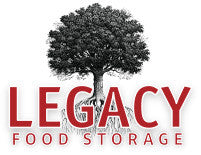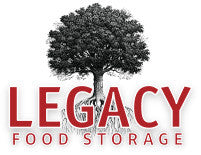
Summer Power Outage Dangers: It’s Not just your Refrigerator
Tom was in the middle of weekend projects when the power went off at 2 PM on Saturday. The air conditioning unit outside groaned to a stop. He prayed it was just a glitch. Maybe someone hit a transformer down the street.
By 6 PM, with no word from the power company, their house felt like a greenhouse. The upstairs bedrooms were unbearably hot. His wife Sarah had moved their baby daughter to the tile floor in the bathroom, trying to find the coolest spot in the house. Their 7-year-old son kept asking when the Xbox would work again, not understanding why they couldn't just "turn the power back on."
Tom's phone was down to 15% battery even with power saver on. The food in their large refrigerator and chest freezer, easily $400 worth of groceries, was fine for a bit, as long as the door stayed shut. Sarah's father, who lived with them and had diabetes, was struggling with the heat as the house temperature climbed past 95°F. They started to worry about his insulin staying cold too.
By midnight, even with all the windows open, the indoor temperature was still 88°F. Tom realized their comfortable family home had become a heat trap, and he had no real plan for protecting his family from the heat. Luckily the power was restored the next day, and, with a lesson learned, they decided to put things in place for the very likely next time this might happen.
This story is common in neighborhoods across America every summer. When the power goes out in winter, we grab heavy blankets and light candles. But when the power dies on a scorching summer day, things can get serious fast in the other direction.
Heat Becomes Deadly Without AC
Your air conditioner isn't just about comfort. When temperatures climb above 90°F, your body starts working overtime to cool itself down. Without AC, indoor temperatures can quickly match or even exceed outdoor heat. Older adults, young children, and people with health problems are the most at risk.
Heat exhaustion creeps up quietly. You might feel dizzy, nauseous, or get a pounding headache. Your skin gets clammy and you feel weak. Push through this and heat stroke follows. That's when your body's cooling system shuts down completely. Your temperature spikes, you stop sweating, and confusion sets in. This can lead to death.
If you have warning: Check with local officials about cooling locations open near you to take your family should temperatures get dangerous.
Post event options: Keep battery-powered fans in your emergency kit. Move everyone to the lowest floor of your house where it stays cooler. Take cool showers or baths while you still have water pressure. Wet towels and place them on your neck and wrists to cool your blood. If needed, find a place to go for relief.
Your Fridge Becomes a Ticking Clock
Food spoilage might seem like a minor problem compared to heat, but it creates real health risks. Your refrigerator will keep things cold for about 4 hours without power. Your freezer buys you maybe 24 hours if you keep the door shut.
After that, bacteria start multiplying fast in the heat. Meat, dairy, and leftovers become dangerous. Even if food looks and smells fine, harmful bacteria might be growing. Food poisoning during a heat wave, when you're already stressed and possibly dehydrated, can land you in the hospital.
If you have warning: Pre-freeze some water jugs or water bottles in the freezer and use like ice packs to extend food life by transferring to smaller coolers. You can use anything cold like cold packs or ice cubes from trays.
Post event options: Keep freezers and refrigerators closed. Keep a food thermometer handy - if it reads above 40°F, toss it. Focus on eating shelf-stable pantry foods like peanut butter, crackers, and canned goods that don't need refrigeration. Once these are gone, go to your plan B with your emergency food storage. When in doubt, throw it out! More tips here: https://www.ready.gov/power-outages
Medical Devices Stop Working
Many people depend on electric medical equipment to stay alive. Oxygen concentrators, CPAP machines, refrigerated medications like insulin, and powered wheelchairs all need electricity. Backup batteries help, but they don't last forever.
During extended outages, people with chronic conditions often end up in emergency rooms. Dialysis patients miss treatments. People with respiratory problems struggle without their machines. The health system gets overwhelmed right when it's dealing with heat-related emergencies too.
If you have warning: Get extra backup batteries or external batteries for essential devices and keep them charged. Talk to your medical provider about a power outage plan for medical devices powered by electricity and refrigerated prescriptions. Having a generator would be ideal for this situation. Learn how long medication can be stored at higher temperatures and get specific guidance for any medications that are critical for life.
Post event options: If the power is out for more than a day, discard any medication that should be refrigerated. Consult your doctor or pharmacist immediately for direction or a new supply. https://www.ready.gov/power-outages If the temps hit dangerous levels, find a cool place to go and carry any meds with you to maintain effectiveness.
Water Systems Can Fail
Many communities rely on electric pumps to move water through their systems. When the power goes out for days, water pressure drops or stops completely. No water means no drinking, no cooking, no sanitation, and no way to cool down.
Wells with electric pumps stop working too. Even if you have water, it might not be safe to drink if treatment plants lose power. Boil advisories become impossible to follow without electricity or gas.
If you have warning: Fill bathtubs and sinks before outages hit for non-drinking water needs like toilet flushing, washing, cleaning and personal hygiene.
Post Solution options: Store at minimum 1 gallon of water per person per day for at least a week, 2 gallons each if possible. Keep a water filter, purification tablets and a simple emergency stove and fuel to be able to boil water.
The Vulnerable Get Hit Hardest
- Power outages don't affect everyone equally.
- Low-income neighborhoods often get their power restored last.
- Older adults living alone might not have family checking on them.
- People without cars can't easily get to cooling centers.
- Mobile home residents face extra danger because these structures heat up faster and cool down slower than regular houses.
- High-rise apartment dwellers get trapped when elevators stop working, especially if they have mobility issues.
Proactive Steps: Create a buddy system with neighbors to check on each other regularly. Keep a list of local cooling centers and their addresses. Have a communication plan so family members know how to reach each other when cell towers get overloaded. Have a plan with neighbors to check on each other.
Getting Ready Before the Next Time
The best time to prepare is before the heat wave hits. Stock up on water, shelf-stable food, and external battery solutions or battery-operated solutions like radio, fans, etc. Know where your local cooling centers are. Check on neighbors, especially older adults living alone.
More tips for preparing for a power outage can be found here: https://www.ready.gov/power-outages
As our summers get hotter and our power grid becomes more stressed, these outages will likely become more common. Having some things ready now will allow you to handle them better when they happen.
Tags
- All
- 25 year food
- 25 year shelf life food
- 72 hour kit
- Best food storage types
- Best long-term food storage
- Blizzard preparedness
- Budgeting
- canning
- Certified GMO-free Emergency foods
- Certified GMO-free foods
- Coffee
- Comparison of emergency food methods
- Composting tips
- Dangers of genetically modified foods
- dehydrated food
- Edible Wild Plants
- emergcy preparedness
- Emergency Cooking
- Emergency Food
- Emergency food Christmas gifts
- emergency food storage
- Emergency Food Supply
- Emergency food supply recommendations
- Emergency Planning
- Emergency Preparedness
- Emergency preparedness advice
- emergency preparednesss
- Emergency Supplies
- Emergency supplies checklist
- Emergency Survival
- emergency survival gear
- Emergency survival kit checklist
- Emergency Survival skills
- exercise
- Family emergency preparedness
- Family emergency preparedness plan
- Family Preparedness
- Food Storage
- Food storage 25 year shelf life
- Food storage amounts
- Food storage Christmas
- Food storage containers long term
- Food Storage Secrets
- Food storage serving size
- Food storage types compared
- freeze dried food
- Freeze dried food storage
- freeze dried meats
- Freeze-dried emergency food storage
- Fruit Trees
- Gardening
- Getting Started
- Gluten-free food Storage
- Gourmet emergency food
- Healthy food storage
- How much emergency food to store
- Improved emergency preparedness
- Jared Markin
- Jared Matkin
- Legacy Premium
- Lessons learned from Hurricane Sandy
- Lessons learned from natural disasters
- long-term food storage
- Long-term Food Storage Guidelines
- Long-term Food Storage tips
- Long-term water storage
- Mental Emergency Preparedness
- Mental toughness
- Money-saving tips
- Natural disaster planning
- Natural Disasters
- Perfect Christmas gifts
- Pet Emergency preparedness checklist
- Pet Emergency preparedness kit
- Pet Emergency Survival tips
- Pets and Emergency Preparedness
- Plant Foraging
- portable solar panels
- portable solar power
- portable water filters
- protein drinks
- Risk of genetic modification
- Seed saving and storage
- Seed saving guide
- Self-reliance
- Self-reliant practices
- Shelf Life
- Solar Cooking
- Solar Ovens
- Special Dietary needs
- Stranded in a car in a blizzard
- Survival food
- Survival Gear
- survival kit
- Survival kits
- Survival Ovens
- Survival Skills
- survivalist gear
- suvival kit
- Tree Pruning tips
- Tree Trimming basics
- unique ideas
- water bottle with filter
- water filter
- water filter straw
- water filters
- Water Filtration
- water pitcher with filter
- water pitchers with filters
- Water purification
- Wild Food Foraging
- Winter composting
- Winter driving
- Winter preparedness tips
- Winter storm preparedness tips
- Winter Survival







